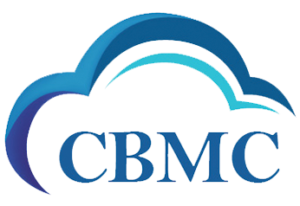In the dynamic landscape of business operations, understanding the intricacies of corporate tax regulations is pivotal for organizations and individuals alike. As we step into the fiscal years of 2024-2025, businesses in the United Arab Emirates (UAE) are keen to grasp the scope of corporate tax and any exceptions that may apply. At CBM Consulting, we specialize in providing comprehensive corporate tax services tailored to the needs of our clients. Let’s delve into what lies ahead in the realm of corporate taxation in the UAE.
Scope of Corporate Tax in the UAE
The UAE has long been renowned for its tax-friendly environment, characterized by a lack of corporate and income taxes. However, certain developments have emerged in recent years, signaling a shift in this landscape. One such development is the introduction of CT in specific sectors.
In 2019, the UAE government enacted Federal Decree-Law No. 7 of 2017, introducing a corporate tax regime for businesses operating within the country. This decree-law mandated that certain sectors, primarily banking and oil companies, are subject to a corporate tax rate of 50% on their profits. However, it’s essential to note that this tax does not apply uniformly across all industries.
Exceptions to Corporate Tax
While the imposition of corporate tax in select sectors is a significant development, it’s crucial to understand the exceptions that exist within the UAE’s tax framework. These exceptions play a crucial role in determining the tax obligations of businesses and individuals operating within the country.
- Free Zones: One of the most notable exceptions to corporate tax in the UAE is the presence of free zones. Companies established within designated free zones are typically exempt from corporate tax for a specified period, which can range from 15 to 50 years, depending on the free zone authority. This exemption extends to both corporate income tax and personal income tax, making free zones an attractive option for foreign investors and businesses seeking tax benefits.
- Tax Treaties: The UAE has been proactive in establishing double taxation avoidance agreements (DTAAs) with numerous countries worldwide. These treaties serve to prevent the same income from being taxed in both the UAE and the investor’s home country, thereby providing relief from double taxation. By leveraging these tax treaties, businesses can optimize their tax liabilities and enhance their international tax planning strategies.
- Tax Incentives and Exemptions: The UAE government frequently introduces tax incentives and exemptions to stimulate economic growth and attract foreign investment. These incentives may include reduced tax rates, exemptions for specific industries or activities, and incentives for research and development initiatives. By staying abreast of these incentives, businesses can capitalize on opportunities to minimize their tax burden and maximize their profitability.
- Strategic Planning and Compliance: As the regulatory landscape evolves, businesses must adopt a proactive approach to corporate tax planning and compliance. By partnering with experienced tax consultants like CBM Consulting, businesses can navigate the complexities of corporate taxation in the UAE effectively. From tax structuring and planning to compliance and reporting, our team offers tailored solutions to meet our clients’ needs and objectives.
Updates on Corporate Tax in the UAE
Recent updates in UAE’s corporate tax regulations indicate shifts that businesses need to be aware of. Notably, businesses operating in the extraction of natural resources will continue to be subject to tax decrees issued by the respective emirate. Additionally, individuals earning income in their personal capacity, as long as the activity does not require a commercial license, remain exempt from corporate tax.
Foreign banks, previously operating under emirate-level tax decrees, will now be subject to the UAE Federal Tax Law, marking a significant shift. The impact of this change will be communicated in due course, affecting both branches of foreign banks and local banks alike.
Conclusion
n the ever-evolving domain of corporate taxation, staying informed about the scope, exceptions, and updates is paramount for businesses operating in the UAE. As we venture into the fiscal years of 2024-2025, businesses must remain agile in their approach to tax planning and compliance.
At CBM Consulting, we are committed to empowering our clients with the knowledge and expertise needed to navigate the intricacies of corporate tax in the UAE. Whether you’re seeking to optimize your tax strategy, leverage tax incentives, or ensure compliance with regulatory requirements, our team is here to support you every step of the way.
For personalized guidance and unparalleled expertise in corporate tax services, partner with CBM Consulting and embark on a journey towards tax efficiency and business success in the UAE. Contact us today to learn more about how we can assist you in achieving your tax objectives.
Related Topic:
Complete walk-through of corporate tax registration in the UAE
For more information and queries, you may always Call us at +971 4335 8373 Write us an email at: [email protected] or visit us at www.cbmc.ae.






